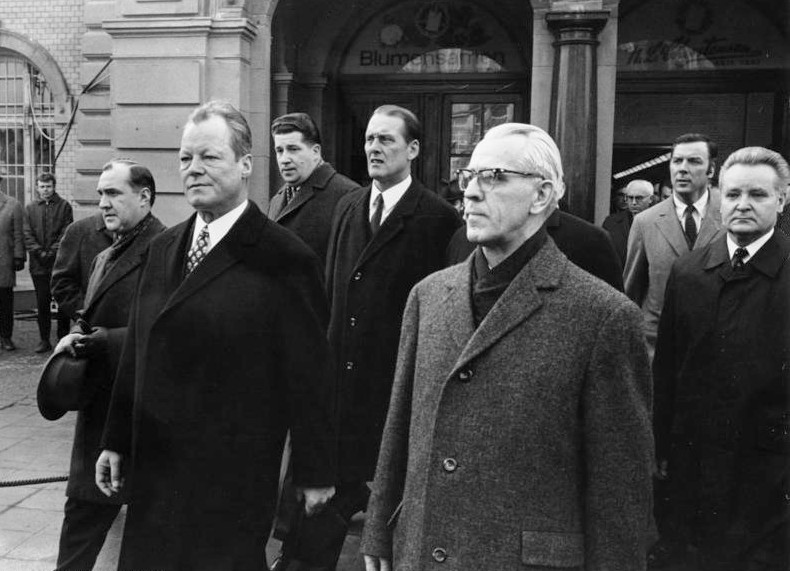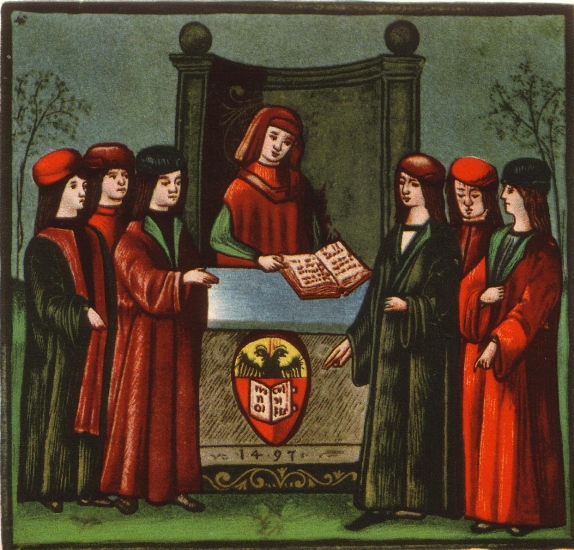|
Reinhold Rehs
Reinhold Rehs (12 October 1901 – 4 December 1971) was a German politician and chairman of the Federation of Expellees in 1967-70. Rehs was born in Klinthenen (now Znamenka in Pravdinsky District), district of Gerdauen, East Prussia (today Russia) as a son of a teacher of Huguenot descent, his family lived in East Prussia since their flight from France. He visited school in Königsberg and studied law at the Universities of Königsberg and Heidelberg. He worked as a journalist for the "Ostpreußische Zeitung" in Königsberg (1923–24) and became a lawyer there in 1928.Biography at munzinger.de He joined the SA in 1933 and the |
Kingdom Of Prussia
The Kingdom of Prussia (german: Königreich Preußen, ) was a German kingdom that constituted the state of Prussia between 1701 and 1918.Marriott, J. A. R., and Charles Grant Robertson. ''The Evolution of Prussia, the Making of an Empire''. Rev. ed. Oxford: Clarendon Press, 1946. It was the driving force behind the unification of Germany in 1871 and was the leading state of the German Empire until its dissolution in 1918. Although it took its name from the region called Prussia, it was based in the Margraviate of Brandenburg. Its capital was Berlin. The kings of Prussia were from the House of Hohenzollern. Brandenburg-Prussia, predecessor of the kingdom, became a military power under Frederick William, Elector of Brandenburg, known as "The Great Elector". As a kingdom, Prussia continued its rise to power, especially during the reign of Frederick II, more commonly known as Frederick the Great, who was the third son of Frederick William I.Horn, D. B. "The Youth of Frederick ... [...More Info...] [...Related Items...] OR: [Wikipedia] [Google] [Baidu] |
University Of Königsberg
The University of Königsberg (german: Albertus-Universität Königsberg) was the university of Königsberg in East Prussia. It was founded in 1544 as the world's second Protestant academy (after the University of Marburg) by Duke Albert of Prussia, and was commonly known as the Albertina. Following World War II, the city of Königsberg was transferred to the Soviet Union according to the 1945 Potsdam Agreement, and renamed Kaliningrad in 1946. The Albertina was closed and the remaining non-Lithuanian population either executed or expelled, by the terms of the Potsdam Agreement. Today, the Immanuel Kant Baltic Federal University in Kaliningrad claims to maintain the traditions of the Albertina. History Albert, former Grand Master of the Teutonic Knights and first Duke of Prussia since 1525, had purchased a piece of land behind Königsberg Cathedral on the Kneiphof island of the Pregel River from the Samland chapter, where he had an academic gymnasium (school) erected in 154 ... [...More Info...] [...Related Items...] OR: [Wikipedia] [Google] [Baidu] |
Treaty Of Warsaw (1970)
The Treaty of Warsaw (german: Warschauer Vertrag, Polish: Układ PRL-RFN) was a treaty between the Federal Republic of Germany (West Germany) and the People's Republic of Poland. It was signed by Chancellor Willy Brandt and Prime Minister Józef Cyrankiewicz at the Presidential Palace on 7 December 1970, and it was ratified by the West German Bundestag on 17 May 1972. In the treaty, both sides committed themselves to nonviolence and accepted the existing border—the Oder-Neisse line, imposed on Germany by the Allied powers at the 1945 Potsdam Agreement following the end of World War II. This had been a quite sensitive topic since then, as Poland was concerned that a German government might seek to reclaim some of the former eastern territories. From the Polish perspective, the transfer of these regions was considered to be a compensation for the former Polish territory east of the Curzon Line ("Kresy"), which had been annexed by the Soviet Union in 1939. In West Germany, B ... [...More Info...] [...Related Items...] OR: [Wikipedia] [Google] [Baidu] |
Ostpolitik
''Neue Ostpolitik'' (German for "new eastern policy"), or ''Ostpolitik'' for short, was the normalization of relations between the Federal Republic of Germany (FRG, or West Germany) and Eastern Europe, particularly the German Democratic Republic (GDR, or East Germany) beginning in 1969. Influenced by Egon Bahr, who proposed "change through rapprochement" in a 1963 speech at the Evangelische Akademie Tutzing, the policies were implemented beginning with Willy Brandt, fourth Chancellor of the FRG from 1969 to 1974. ''Ostpolitik'' was an effort to break with the policies of the Christian Democratic Union (CDU), which was the elected government of West Germany from 1949 until 1969. The Christian Democrats under Konrad Adenauer and his successors tried to combat the Communist government of East Germany, while Brandt's Social Democrats tried to achieve a certain degree of cooperation with East Germany. The term ''Ostpolitik'' has since been applied to Pope Paul VI's efforts to eng ... [...More Info...] [...Related Items...] OR: [Wikipedia] [Google] [Baidu] |
Former Eastern Territories Of Germany
The former eastern territories of Germany (german: Ehemalige deutsche Ostgebiete) refer in present-day Germany to those territories east of the current eastern border of Germany i.e. Oder–Neisse line which historically had been considered German and which were annexed by Poland and Soviet Union after World War II, these territories were also the lands where Germans used to be only or main ethnicity. So in contrast to the lands awarded to the restored Polish state by the Treaty of Versailles after World War I, the German territories lost with the Potsdam Agreement after World War II on 1 August 1945 were either almost exclusively inhabited by Germans before 1945 (bulk of East Prussia, bulk of Lower Silesia, Farther Pomerania, and parts of Western Pomerania, Lusatia, and Neumark awarded to Poland), mixed German-Polish with a German majority ( Danzig, Posen-West Prussia Border March, Lauenburg and Bütow Land, the southern and western rim of East Prussia, Ermland, West Upper S ... [...More Info...] [...Related Items...] OR: [Wikipedia] [Google] [Baidu] |
Willy Brandt
Willy Brandt (; born Herbert Ernst Karl Frahm; 18 December 1913 – 8 October 1992) was a German politician and statesman who was leader of the Social Democratic Party of Germany (SPD) from 1964 to 1987 and served as the chancellor of West Germany from 1969 to 1974. He was awarded the Nobel Peace Prize in 1971 for his efforts to strengthen cooperation in western Europe through the EEC and to achieve reconciliation between West Germany and the countries of Eastern Europe. He was the first Social Democrat chancellor since 1930. Fleeing to Norway and then Sweden during the Nazi regime and working as a left-wing journalist, he took the name Willy Brandt as a pseudonym to avoid detection by Nazi agents, and then formally adopted the name in 1948. Brandt was originally considered one of the leaders of the right wing of the SPD, and earned initial fame as Governing Mayor of West Berlin. He served as the foreign minister and as the vice-chancellor in Kurt Georg Kiesinger's cabi ... [...More Info...] [...Related Items...] OR: [Wikipedia] [Google] [Baidu] |
Landsmannschaft Ostpreussen
A Landsmannschaft (; Latin ''natio'', plural nationes) is a German fraternity of several fraternity forms called ''Studentenverbindung''. The older forms of ''Landsmannschaften'' were part of corporations and are closely aligned with the beginnings of universities in medieval times of the 12th and 13th centuries. The newer forms of ''Landsmannschaften'' are a kind of reform corps and most ''Landsmannschaften'' are members of the Coburger Convent. This is also the term for a Jewish burial society: landsmanshaft History In order to understand the history of German fraternities, it needs to be known that the first universities in Europe were established in the 12th and 13th century in Paris (France), Bologna and Padua (Italy), and later also in Oxford and Cambridge (England). Students joined groups in regards to region in order to have protection as well as support in being heard in their interests. The two early forms were called nations (Nationes) or colleges (Collegien) and ... [...More Info...] [...Related Items...] OR: [Wikipedia] [Google] [Baidu] |
Landtag Of Schleswig-Holstein
The Schleswig-Holstein Landtag is the state parliament of the German state of Schleswig-Holstein. It convenes in the state's capital Kiel and currently consists of 69 members of five parties. The current majority consists of coalition of the Christian Democratic Union and the Greens, supporting the cabinet of Minister President Daniel Günther. The Landtag maintains partnerships with the parliament of the West Pomeranian Voivodeship, the Oblast Duma of the Kaliningrad Oblast and the parliament of the Pomeranian Voivodeship. Seat Since 1950, the Landtag convenes in the Landeshaus in Kiel, which was built in 1888 as the Royal Marine Academy. During the Nazi-Era, the Landeshaus served as seat of the German Navy's Baltic Sea Command. Up to 1950, the Landtag convened in Lübeck, Flensburg and Eckernförde as well as in Kiel. Since its renovation in 2003, the Landtag is assembled in a new Chamber inside of the Landeshaus. Electoral system The Landtag is elected via mixed-mem ... [...More Info...] [...Related Items...] OR: [Wikipedia] [Google] [Baidu] |
Schleswig-Holstein
Schleswig-Holstein (; da, Slesvig-Holsten; nds, Sleswig-Holsteen; frr, Slaswik-Holstiinj) is the northernmost of the 16 states of Germany, comprising most of the historical duchy of Holstein and the southern part of the former Duchy of Schleswig. Its capital city is Kiel; other notable cities are Lübeck and Flensburg. The region is called ''Slesvig-Holsten'' in Danish and pronounced . The Low German name is ''Sleswig-Holsteen'', and the North Frisian name is ''Slaswik-Holstiinj''. In more dated English, it is also known as ''Sleswick-Holsatia''. Historically, the name can also refer to a larger region, containing both present-day Schleswig-Holstein and the former South Jutland County (Northern Schleswig; now part of the Region of Southern Denmark) in Denmark. It covers an area of , making it the 5th smallest German federal state by area (including the city-states). Schleswig was under Danish control during the Viking Age, but in the 12th century it escaped full control ... [...More Info...] [...Related Items...] OR: [Wikipedia] [Google] [Baidu] |
Operation Hannibal
Operation Hannibal was a German naval operation involving the evacuation by sea of German troops and civilians from the Courland Pocket, East Prussia, West Prussia and Pomerania from mid-January to May 1945 as the Red Army advanced during the East Prussian and East Pomeranian Offensives and subsidiary operations. The operation was one of the largest evacuations by sea in history. Operations The East Prussian Offensive by the Red Army's 3rd Belarusian Front under General Ivan Chernyakhovsky commenced on January 13, 1945 and, with Marshal Konstantin Rokossovsky's 2nd Belorussian Front, subsequently cut off East Prussia between January 23 and February 10, 1945. German Grand Admiral Karl Dönitz ordered General Admiral Oskar Kummetz, as Naval High Commander, Baltic, and Rear Admiral Konrad Engelhardt, head of the Kriegsmarine's shipping department, to plan and execute the ''Rettungsaktion'' (evacuation operation). Dönitz radioed a message to Gdynia in occupied Poland on Jan ... [...More Info...] [...Related Items...] OR: [Wikipedia] [Google] [Baidu] |
World War II
World War II or the Second World War, often abbreviated as WWII or WW2, was a world war that lasted from 1939 to 1945. It involved the vast majority of the world's countries—including all of the great powers—forming two opposing military alliances: the Allies and the Axis powers. World War II was a total war that directly involved more than 100 million personnel from more than 30 countries. The major participants in the war threw their entire economic, industrial, and scientific capabilities behind the war effort, blurring the distinction between civilian and military resources. Aircraft played a major role in the conflict, enabling the strategic bombing of population centres and deploying the only two nuclear weapons ever used in war. World War II was by far the deadliest conflict in human history; it resulted in 70 to 85 million fatalities, mostly among civilians. Tens of millions died due to genocides (including the Holocaust), starvation, ma ... [...More Info...] [...Related Items...] OR: [Wikipedia] [Google] [Baidu] |

.jpg)



